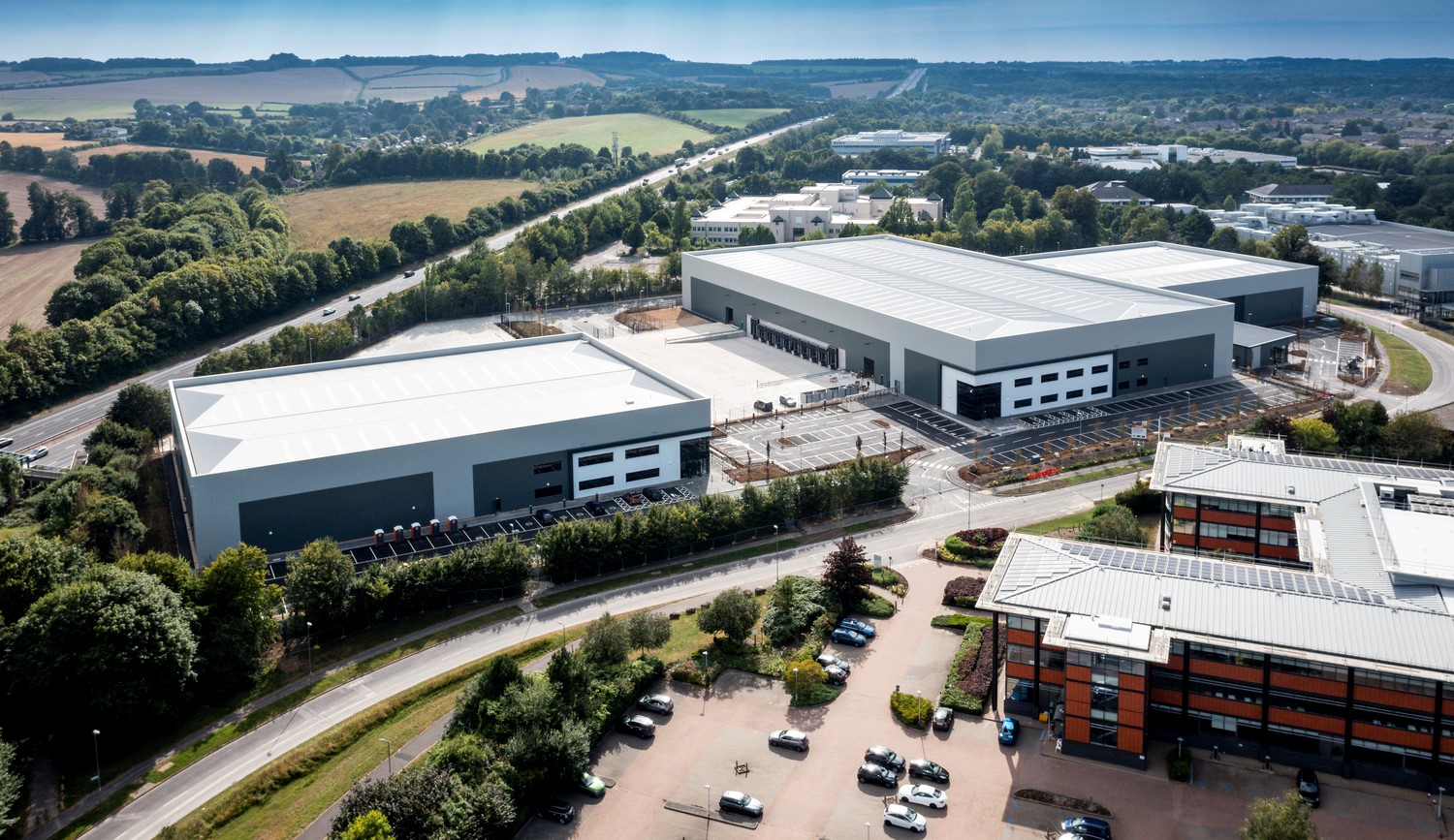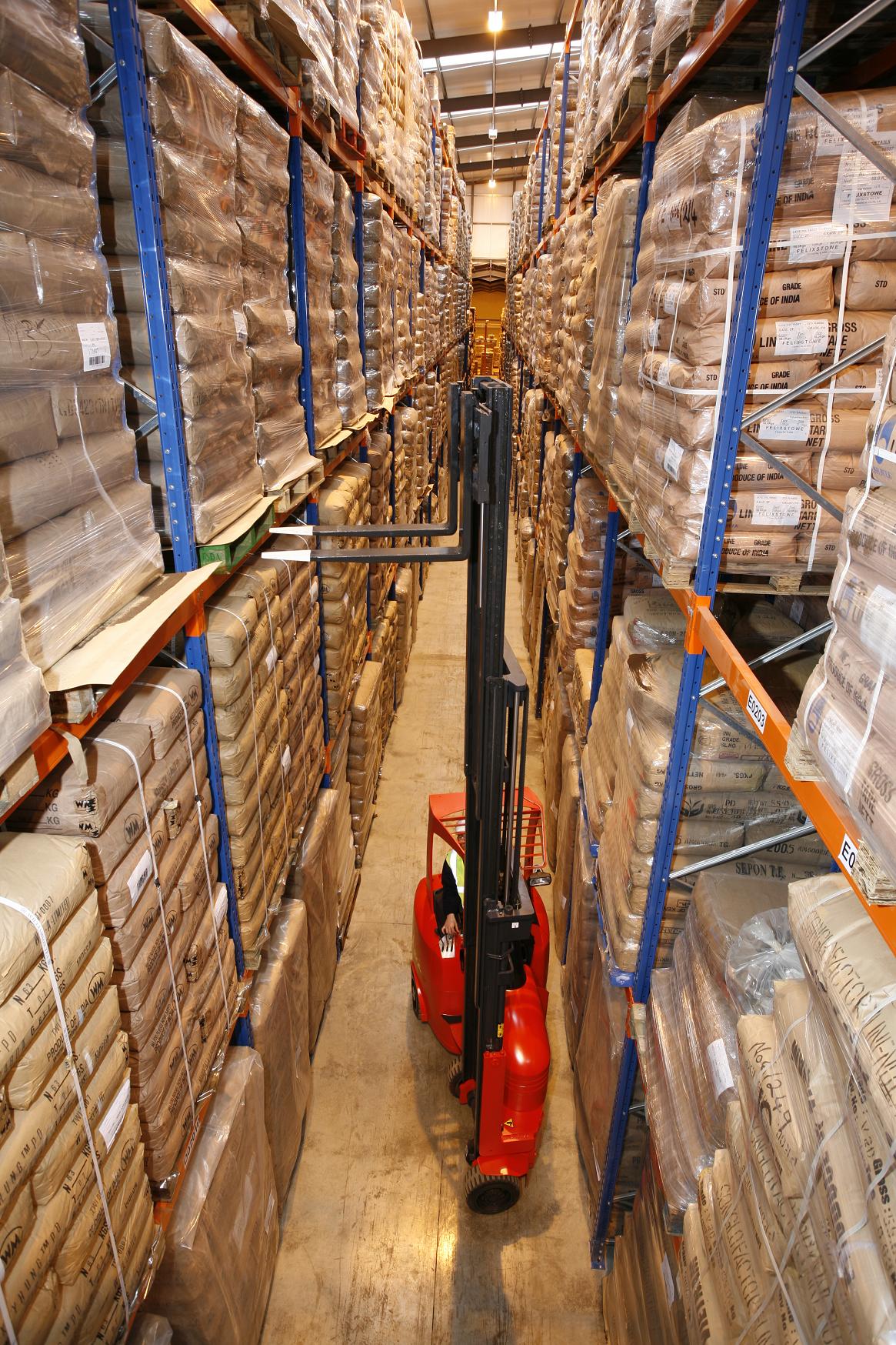We’ve reached the final category of our run-through of each of the IFOY Award nominated finalists ahead of the winners announcement on 30th June at BMW World. It’s the turn of Noyes Technologies, the first of three finalists in the Start-up of the Year category.
IFOY Category: Start-up of the Year
Noyes creates the innovative solution for a new kind of urban logistics that flexibly adapts to rapidly changing consumer behaviour. In the E- and Q-commerce (Quick commerce) sector, customers are demanding ever faster delivery times – evident in Gorillas and Flink, which advertise 10-minute delivery. However, the required warehouse space close to customers, especially in urban areas, is scarce and expensive. The particular challenge is to enable urban logistics while operating efficiently as well as economically.
The solution to this lies in a system that can seamlessly and flexibly adapt to urban conditions. This includes: Minimising warehouse space through optimal use of floor space and room height, low noise levels, flexibility and adaptability, 24/7 availability and high product density. All this is offered by the Noyes storage solution.
Noyes Nano Fulfillment is the smallest and fastest supply chain solution in close proximity to the customer. Noyes urban nano warehouse enables lightning fast delivery times at an affordable price. Fast pick times of only five to ten seconds per access save a lot of time compared to the manual process. In addition, the Noyes solution’s ability to compress up to 2000 SKUs into a 30 sq m warehouse enables it to transform any store space into fully automated, customised nano warehouses.
A special feature is the sustainable and energy-saving cooling system with different temperature zones, which is currently being developed in cooperation with a renowned cooling technology manufacturer. This cooling solution can be quickly and easily integrated into any Noyes warehouse. The system also offers unparalleled flexibility, thanks to the technology used and developed in-house: the plug-and-play system allows system expansions at any time – even during ongoing operation. At the same time, important software updates and information can be imported “over the air”.
The Noyes solution serves a wide range of application areas. These include E- and Q-commerce, food retail, postal services, medical and hospital as well as industrial applications. Especially in the area of Q- & E-commerce and food trade the company offers a modern and promising solution to face the growing challenges of dynamic and erratic consumer behaviour.
Innovation
Noyes Technologies revolutionises urban logistics with intelligent, fully automated nano warehouses that sustainably optimise processes and significantly reduce costs. Noyes warehouses are characterised by their highly flexible, uncomplicated and modular design. Based on this, the warehouses can be optimised for any floor plan. Unlike existing decentralised storage systems, no additional corridors are required for transport and access can be provided on any level. This saves storage space and thus enables integration into the urban environment.
Market relevance
The need for automation and better space utilisation in warehouse logistics has been growing for years. This growth was further accelerated by the COVID-19 pandemic in the e- and Q-commerce (quick commerce) sectors. While new sales and new customer records were set in e-commerce, especially by closed department stores and regular stores, Q-commerce grew to become a serious branch in the grocery supply sector. Providers such as Gorillas, Getir and Flink are not only the talk of the town due to the huge influx of capital from outside backers, but the promise of delivering groceries in less than ten minutes also made waves. Noyes Technologies’ ultra-dense and automated storage system allows customers in virtually all industries to benefit from significantly improved space utilisation. Customers in the e-commerce sector can use the storage solution in central warehouses to realise savings in the pick-and-pack process steps in particular, in addition to space savings. Also the Noyes solution significantly reduces the risk of picking errors and costly returns.
The Q-Commerce divisions face high rental costs with its cost-intensive city centre locations. In addition, customer orders must be assembled manually. The Noyes warehouse solves two problems here. The enormous density of the warehouse means that either the product range can be expanded, or existing space can be reduced, as aisles for pickers are no longer required. The number of pickers can also be reduced because the warehouse automates the movement of goods from inside the system to the pick location. The two factors play an important role in Q-Commerce vendors’ path to sustainable profitability.
The system is also relevant to other industries. Manufacturing companies can use the system to pre-buffer significantly more parts for picking on the shop floor. This results in a reduction of the delivery frequency within the plant, a better utilisation of space and the partial elimination of sequencing. Further use cases can be found in the healthcare sector, where the warehouse keeps medicines in hospitals, for example, protected from access and close to the patient.
Main customer benefits
Even the smallest areas can be automated by the innovative storage system from Noyes Technologies. While classic automated storage systems are offered from about 900 sq m, the Noyes Storage System can automate areas as small as ten square metres due to its modular design. The ability to store 2,000 SKUs (Stock-Keeping-Units) in an area of 30 sq m with a ceiling height of only two meters is unparalleled among competitors.
The combination of the warehouse’s enormous density with very fast access times of five to ten seconds per product enables customers to operate even with the highest demands on the warehouse system’s performance. The warehouse is modular, offering customers a highly flexible and scalable solution. It can be expanded on the fly and thus grows with customers’ needs, implementations of the warehouse are possible within a very short time (one to two days) due to the cloud-based management software and the non-requirement of ground anchoring or heavy current connections.
The innovative cooling system, which is being developed in conjunction with a renowned supplier of cooling systems, offers further advantages in addition to the highly flexible cooling of individual boxes. Seamless verification and documentation of the cold chain is achieved through sensor technology, thus ensuring greater safety and less food waste. The integration of the cooling system also follows the Noyes principle of simplest expansion and can be installed as well as integrated during existing operations without disrupting the existing flow.
With the addition of a pick robot, the overall system can be operated 24/7. Market access through same-day delivery or same-day pickup can thus be made possible for any partners and customers. This also ensures a reduction in inner-city parcel delivery volumes with classic delivery vehicles. Starting from the Nano Fulfillment Hubs, either end customers can pick up the product around the clock and according to their own time requirements. Alternatively, last-mile delivery providers use bicycles or e-bikes to bring the products to the end customers sustainably and with low emissions. In the future delivery bots will also handle the last-mile deliveries. Noyes Technologies thus actively contributes to sustainable urban development in addition to increasing efficiency for its customers.
Summary
Noyes Technologies offers the first robot-operated, ultra-dense, automated and highly flexible nano logistics system for urban logistics and any budget on the market. The goal is to create a new standard in nano fulfillment, enabling sustainable consumption for the global growing urban population.
The Noyes solution optimises logistics processes and reduces costs to the minimum necessary. The goal of Noyes Technologies is to solve complex problems sustainably through simple approaches: Noyes achieves this through the consistent application of first-principle thinking and a clear focus on reducing technology to what is necessary and additionally paying attention to a high degree of standardisation and modularisation.
IFOY Innovation Check
Market Relevance: Noyes offers compact and cost-effective storage systems close to the customer for e- and quick-commerce. In terms of storage density combined with high provisioning speed and flexibility, there are currently no comparable, economically applicable warehouse automation solutions in this segment. In addition, a nano warehouse can also be used in other industries such as food retail, postal services, medication warehouses or as a component warehouse in production. This suggests a very high market potential.
Customer Benefit: Customers benefit from minimising storage space, reducing delivery frequency and offering more products in the same space. At the same time, a high provision performance is achieved through automatic sorting according to access frequency. This is expected to double the picking performance and greatly reduce picking errors. The highly flexible modular design allows the realisation of any storage geometry in all three dimensions. In the near future, an efficient cooling system for refrigerated and frozen zones as well as a picking robot for automatic order picking will be offered.
Novelty: While the individual components and technologies used are not in themselves exceptional market novelties, their combination in the Noyes nano warehouse represents an innovation optimised for cost, packing density, speed, scalability, simplicity and robustness. Until now, automated warehouses that could be operated economically were not technologically available on the market in the segment of 10 to 300 square metres of floor space. The modular design allows entry at minimal investment costs with any future expandability during operation.
Functionality / Type of Implementation: The solution shown was technically convincing, can be set up by laymen, is implemented redundantly and, due to the simplicity of the chassis kinematics and the navigation solution, a long service life and robustness of the robots can be expected. The self-developed robots have a minimal overall height, reliably drive under the load carriers on every warehouse level and lift them slightly for transport to the loading and unloading balconies at the edge of the warehouse. The use of different box sizes is possible. The provisioning time of 10 seconds per load carrier could not yet be comprehensively tested on the test system.
Verdict: Noyes nano warehouses can offer economic automation from a footprint of 10 square metre, which is a novelty in the field of micro warehouses, together with other innovations such as highest storage density, high freedom in the form factor of the warehouse, high flexibility between storage density and performance, modularity, scalability, simplicity and minimal costs. This unique combination makes the solution highly attractive for the automation of local dark stores, not only in the fast-growing e- and quick-commerce market.
Market Relevance ++
Customer Benefit ++
Novelty ++
Functionality / Type of Implementation ++
++ very good / + good / Ø balanced / – less / – – not available
For an overview of all the finalists, visit www.ifoy.org
CLICK HERE to find out more about Noyes.







